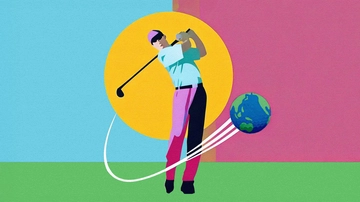What do you want the freezing level at 5,000 meters to be… Ligabue's appeal against the climate crisis


Ligabue lights up the campovolo at the concert-event (photo Artioli)
Something is changing. Finally, the world of art and music is starting to speak out clearly on the issue of the climate crisis . In a time when silence or trivialization seem to be the most common response, someone was needed who, from the stage, could break this torpor. And Luciano Ligabue did it . During his concert at Campovolo , a few days ago, Ligabue gave the audience something that goes beyond music . He brought a lucid, uncomfortable and necessary reflection to the stage. An outburst, almost a civil appeal, that transformed the stage into a square. And he used simple, direct words that were impossible to ignore: “They keep telling us that nothing has changed. That it has always been hot in the summer. That dealing with the climate problem is a luxury we cannot afford."
Ligabue's complaintWhat Ligabue is doing is not just a denunciation, it is a stance. A stance that music, for too long, has left on the sidelines, as if art had to remain neutral in the face of evidence . But art is never neutral. It is an expression of the time we live in and today this time speaks to us of a crazy climate, of a balance that is breaking, of a collective blindness that risks dragging us into the abyss.
Ligabue continues, with the voice of someone who no longer accepts indifference: “What do you want the drought in Sardinia or Sicily to be? What do you want the floods, the inundations, the storm surges to be? What do you want all those people who lost everything and were then left alone to be?”. The strength of these words lies in their adherence to reality. They strike precisely for this: for their disarming everydayness. Because yes, this is exactly what they repeat to us every day so as not to act, so as not to truly change, so as not to take responsibility. And yet, as Ligabue reminds us, even those who make global decisions should have an eye to the future. They should feel the weight of what they leave as a legacy. And then he asks, almost bitterly: “These people here — the leaders of the world — will have children or grandchildren too .”
The freezing level at 5,000 metersIt's a question as simple as it is devastating. Because if they really thought about it, if they really stopped for a moment to look ahead, perhaps they wouldn't continue to shrug their shoulders, bowing to the sole logic of immediate profit . But the climate, the environment, the fate of the planet — it is said — can wait . The market comes first. Except that this is no longer the case. The time to wait is over. The climate crisis is not a hypothesis, it is already here. And the data from these days demonstrate this: next Saturday, according to forecasts, the freezing level — that is, the altitude at which the temperature drops to zero degrees — will exceed 5,000 meters. This means that even the highest peaks of the Alps will be above zero, in the middle of June. This is a very serious anomaly, a condition that once occurred perhaps in August, but never so early. The warm air brought by the African subtropical anticyclone will rise up to the Alpine arc. In fact, all the Italian mountains will be warm. The melting of glaciers will accelerate, weather conditions will become unstable, the risk of extreme events will be very high.
"What do you want it to be"In this context, continuing to deny, minimize or postpone any structural intervention is not only irresponsible: it is simply crazy. It is a historical responsibility missed. And so yes, today more than ever we need music too – the kind that reaches everyone, the kind that enters where politics often doesn’t reach – to take the risk of saying something. Of opening our eyes. Because, as Ligabue sings in “Cosa vuoi che sia”: “The eyes do what they can, everything they don’t see is because you don’t want to see it”.
The problem is not only the invisibility of the climate crisis, but the voluntary refusal to face it. A form of silent complicity, which allows everything to continue as if nothing were happening. Listening to it, the piece seems written to tell this sad reality, pressing with a bitter, almost cynical irony: "What do you want it to be, it all passes, just a little time and you'll laugh about it. What do you want it to be, you're just in it, pay your bill and take care of it yourself".
In these words there is all the loneliness of citizens, of people who are told: make do. And in the meantime the world continues to turn, blind, deaf, distracted. But today we can no longer afford it. We can no longer wait for "someone" to take care of it. The time has come to act. To question habits, priorities, consumption models. To change. Even in small gestures. The reaction that each and every one of us chooses to have today will make all the difference for tomorrow.
Luce









